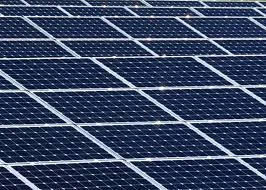On Wednesday I met with Rhonda Gatzke and John Phelan, Fort Collins Utilities engineers, to discuss options for the planned Community Shared Solar project and the current rate-payer subsidies for solar ownership. Approximately 3% of everyone's electric bill (in Fort Collins) goes to pay for rebates and administration of the solar program. Some people call this a regressive tax because many people are paying into a program that they can't afford to participate in. There is a way to more equitable way to distribute the cost and net value of solar. It isn't easy to navigate, but we can do it.
Solar panels typically produce electricity for 25 yrs or more and pay for themselves, without rebates, after about 15 years. It may be that replacing rebates with a financing program would work better for potential solar owners and reduce the cost of the program to rate-payers. The target is to provide monthly financing payments that are less than the value of the electricity generated by the solar panels. That way any customer can participate with no upfront cost and at a positive cash flow.
Clean Energy Collective, the company that built and runs the Riverside community solar project, has reached this target with other utilities. The challenge is to see if we can make it work in Fort Collins with our low electric rates. The planned (2018 or 2019) community shared solar project provides the opportunity to see if we can meet that challenge. I think that Rhonda, John, and I were on the same page about this by the end of our meeting.
The other conversation to be had about Fort Collins solar program is the current limit on solar ownership and how we pay owners for the electricity their solar generates. You are only allowed to have as much solar power as 120% of your previous year's consumption. If you used 100 units of electricity in 2016 then you can own 120 units of solar in 2017. This limit was established because the utility pays you the retail rate, not the wholesale rate, for electricity that your solar generates. It would be too expensive to pay people that much if they generated a lot more electricity then they use.
The problem is that if you want to buy an electric car and charge it from your solar, or convert your gas appliances to solar electric, then you have to run up high electric bills for a year before the City will let you solarize that increased use. One option that might work is to keeping paying the retail rate for solar up to 100% of your current consumption and pay wholesale for whatever you generate in excess of your usage. The utility won't be overpaying and solar owners will have a financial incentive to switch from gas to solar electric.
I will be following up with Rhonda and John to see what they can discover about the Clean Energy Collective model and changes to the rebate program. One question for the public is: Would you prefer to get a 15% rebate for solar panels, or would you prefer a financing plan with no upfront cost and positive cash flow for the life of the solar panels?
